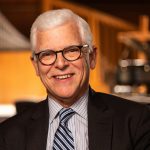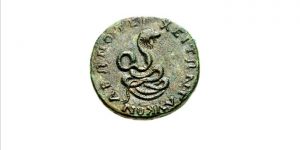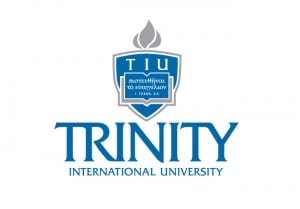
He was practiced in the art of deception.
People back then knew him as Alexander of Abonoteichus, a second century character Lucian describes in his essay “Alexander the False Prophet.” Apart from Lucian’s descriptions of him, we know little about the man. However, his impact in the ancient world was profound and even commemorated in coins from the second century.
Looking good, but…
Lucian regarded Alexander as quite good looking: “He was a fine handsome man with a real touch of divinity about him, white-skinned, moderately bearded; he wore besides his own hair artificial additions which matched it so cunningly that they were not generally detected. His eyes were piercing and suggested inspiration, his voice at once sweet and sonorous. In fact, there was no fault to be found with him in these respects.” His appearance and voice were captivating.
Alexander’s mind matched his looks: “In understanding, resource, acuteness, he was far above other men; curiosity, receptiveness, memory, scientific ability — all these were his in overflowing measure. But, Lucian says, “he used them for the worst purposes.” Lucian observed that “human life is under the absolute dominion of two mighty principles, fear and hope and that anyone who can make these serve his ends may be sure of a rapid fortune.” Alexander was adept at playing upon people’s fears and hopes, a skill that made him exceedingly rich.
The deception
Alexander feigned divine inspiration and wrapped himself with a snake-god Glykon that he had fitted with a linen snake’s head that looked human. He could open and close its mouth with the horsehairs he attached to it. Lucian describes how Alexander employed it: “Picture to yourself a little chamber into which no very brilliant light was admitted, with a crowd of people from all quarters, excited, carefully worked up, all a-flutter with expectation.” The serpent’s mouth opened and closed while Alexander gave predictions about the future and uttered oracles. People paid for the oracles; Alexander raked in the profits.
Lucian scorned the folk taken in by Alexander, “the thick-witted, uneducated fellows that they were, for being deluded when they touched the serpent.” While crowds flocked in, duped by Alexander’s deception, there were “a number of sensible people” who “began to shake off their intoxication and combine against him.” Among them were the Epicureans, who doubted the validity of oracles and prophecies, and the Christians.
The Christians were not taken in. They, along with the Epicureans, saw through the deception and would have nothing to do with it. Alexander stirred people up against them shouting “Out with the Christians!” Alexander hated the Christians since they saw he was a fraud, practiced in the art of deception. He did not tolerate dissent.
Reading Lucian’s account of Alexander’s trickery almost seems to echo Paul’s warning to the Thessalonian believers about the “lawless one,” known elsewhere as the Antichrist, “who used all power, signs, lying wonders, and every kind of wicked deception” (2 Thessalonians 2:9-10). Paul appears to echo Jesus’ warning in the Sermon of the Mount: “Beware of false prophets, who come to you in sheep’s clothing but inwardly are ravenous wolves.”
The tests of truth
Whether in the first centuries or ours, how do we discern deception and keep from being drawn in by it?
Character

Jesus prescribes the litmus test to differentiate between the false and the true: “You will know them by their fruits. Are grapes gathered from thorns, or figs from thistles? In the same way, every good tree bears good fruit, but the bad tree bears bad fruit. A good tree cannot bear bad fruit, nor can a bad tree bear good fruit. Every tree that does not bear good fruit is cut down and thrown into the fire. Thus you will know them by their fruits” (Matthew 7:15-20). We evaluate character.
The gospel
After teaching the New Testament for decades, I have become increasingly concerned about the low level of biblical and theological literacy among my incoming students. Just a few years back, one of my students wrote a comment at the end of his final exam in a New Testament introduction course: “I never read the New Testament before. I found it to be a very interesting book.” This student had been raised in the church! When the apostle John taught how to ferret out false prophets, he instructed the church in Ephesus to use the yardstick of apostolic teaching as the means to distinguish the true from the false (1 John 4:1-3). We must know the gospel.
Discernment
While the apostle Paul celebrated the use of the gifts of the Spirit in the church, he recognized the need to evaluate prophecies within the Corinthian congregation: “In the case of prophets, let two or three speak and have the rest evaluate what is said” (1 Corinthians 14:29 CEB). Paul called the Corinthians to examine carefully what was said, discerning whether it was really the truth or only had the appearance of truth. Lucian celebrated the Epicureans because they were “sensible people” who could “shake off their intoxication” induced by Alexander. The Christians apparently did the same.
Art of Discernment
As you can guess, I am a firm believer in a good education, the kind that teaches people literature, the natural sciences, the social sciences, the arts and thoroughly grounds them in Scripture. A good education is carried out in a dialogical community where iron sharpens iron and people learn to think and evaluate various positions, reading widely not narrowly, discerning the true from the false, pushing aside conspiracy theories and rumors and embracing solid facts. It is also education that is concerned with character formation, exemplifying the values the gospel, the character of Jesus. We must be practiced in the art of discernment.
Jesus, may truth prevail over deception in our community and in our world.
 Dr. Gene L. Green is the Dean of Trinity International University – Florida. Visit them at tiu.edu/florida
Dr. Gene L. Green is the Dean of Trinity International University – Florida. Visit them at tiu.edu/florida
Read last month’s article by Dr. Gene L. Green at: https://www.goodnewsfl.org/the-body-of-christ/

Comments